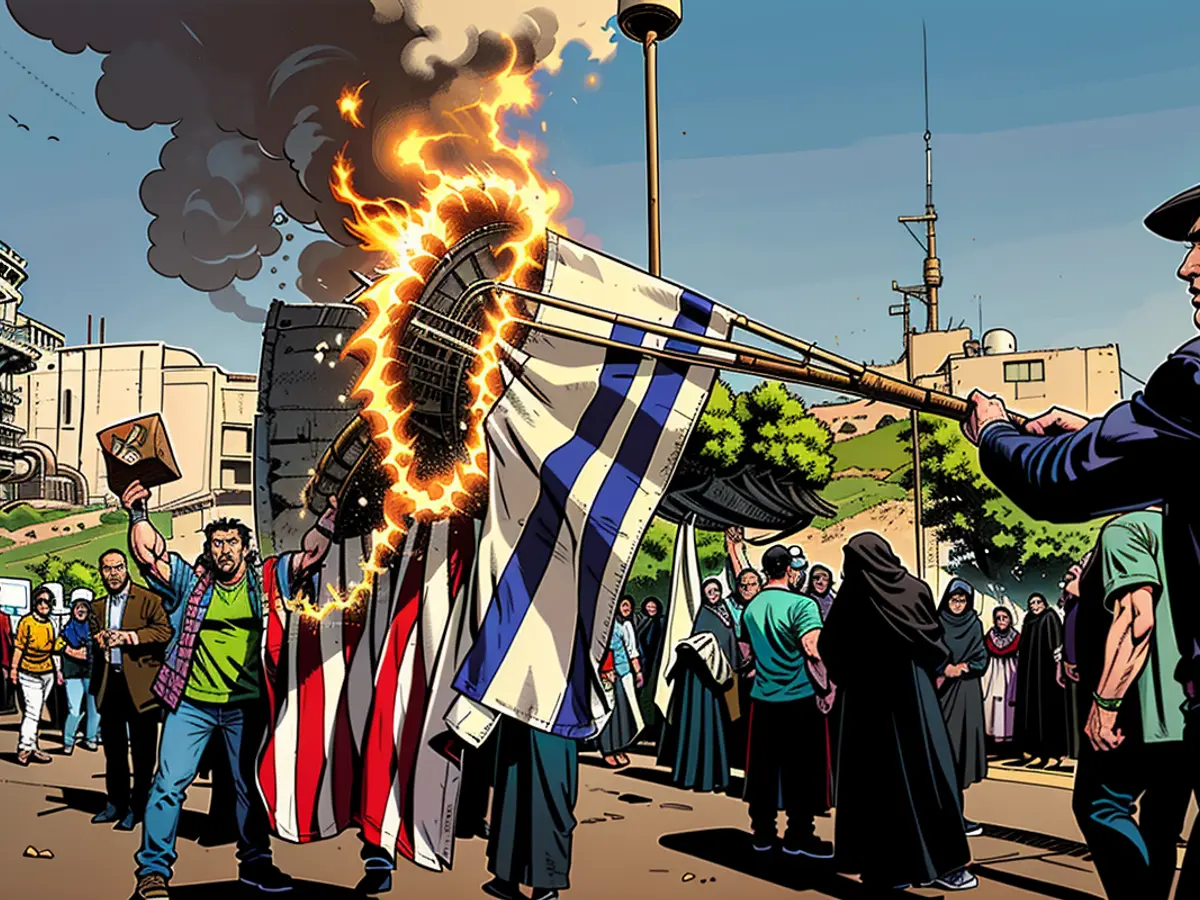The United States introduces fresh restrictions against Iran
Following Iran's September 30 rocket assault on Israel, the United States has enacted fresh sanctions against the Islamic Republic. According to U.S. Secretary of State Antony Blinken, these restrictions target the Iranian government's income financing its nuclear program, missile technology, and terror group sponsorship.
The U.S. Department of State confirmed that businesses with connections to Iran's oil commerce and ships transporting Iranian petroleum are subject to the new penalties. Israel responded to Iran's launch of approximately 200 rockets on October 1 by threatening "fatal and precise" reprisals. In response, U.S. President Joe Biden advised Israel against targeting Iran's nuclear facilities or energy installations. Fearing a strike on Iranian facilities could lead Tehran to retaliate by hitting oil fields in Saudi Arabia, potentially resulting in American military involvement, U.S. officials cautioned Israel, as reported by the "Wall Street Journal."
Iran has warned Arab nations that it may take retaliatory measures if they permit Israel to use their airspace for strikes against targets in Iran. Meanwhile, the EU is preparing to impose new sanctions on Iran as of October 3. Diplomats have revealed that member states aim to penalize Iran for providing ballistic missiles to Russia, in violation of international protocols, due to the ongoing conflict in Ukraine.
Furthermore, confrontations between Israel and its adversaries in Lebanon and Gaza continued during the Jewish holiday of Yom Kippur, which is traditionally observed as a day of rest and fasting. Despite this, Israeli soldiers in active war zones are not required to fast. Around 120 rockets were fired at Israel within the first few hours of Yom Kippur, with around 230 projectiles launched at Israel in total the day before. Nightly sirens echoed in northern Israel, while a pair of drones targeted the Tel Aviv district, causing damage to a building in the coastal town of Herzlia without injuring anyone. The Israeli air force reportedly launched strikes in Lebanon, which reportedly resulted in casualties, but the number is yet to be confirmed.
U.S. Secretary of State Antony Blinken spoke with the Lebanese Parliament Speaker, Nabih Berri, and Prime Minister Najib Mikati. Blinken emphasized the U.S.'s support for a diplomatic solution to the conflict and the importance of rebuilding institutions to stabilize Lebanon post-conflict, emphasizing the need for a democratic election to fill the presidency's recent vacancy.
Since last year, Hizbollah has been using rockets and grenades to attack Israel, claiming solidarity with Palestinian Hamas in Gaza. Israel aims to push back Hizbollah from the Israeli-Lebanese border, allowing approximately 60,000 displaced Israelis to return home. However, the pro-Iranian militia insists on ceasing fire only once a truce is reached in Gaza, in violation of United Nations Resolution 1701, which mandates the military to retreat behind the supposed Blue Line, the Lebanese-Israeli border.
The escalating tensions between Iran and Israel continue, with the U.S. threatening potential consequences if Israel attacks Iran's nuclear facilities or energy installations, due to the fear of retaliation and potential American military involvement. Meanwhile, the possibility of 'War with Israel' becomes a pressing concern, as Iran warns Arab nations not to allow Israel to use their airspace for strikes against Iran.








